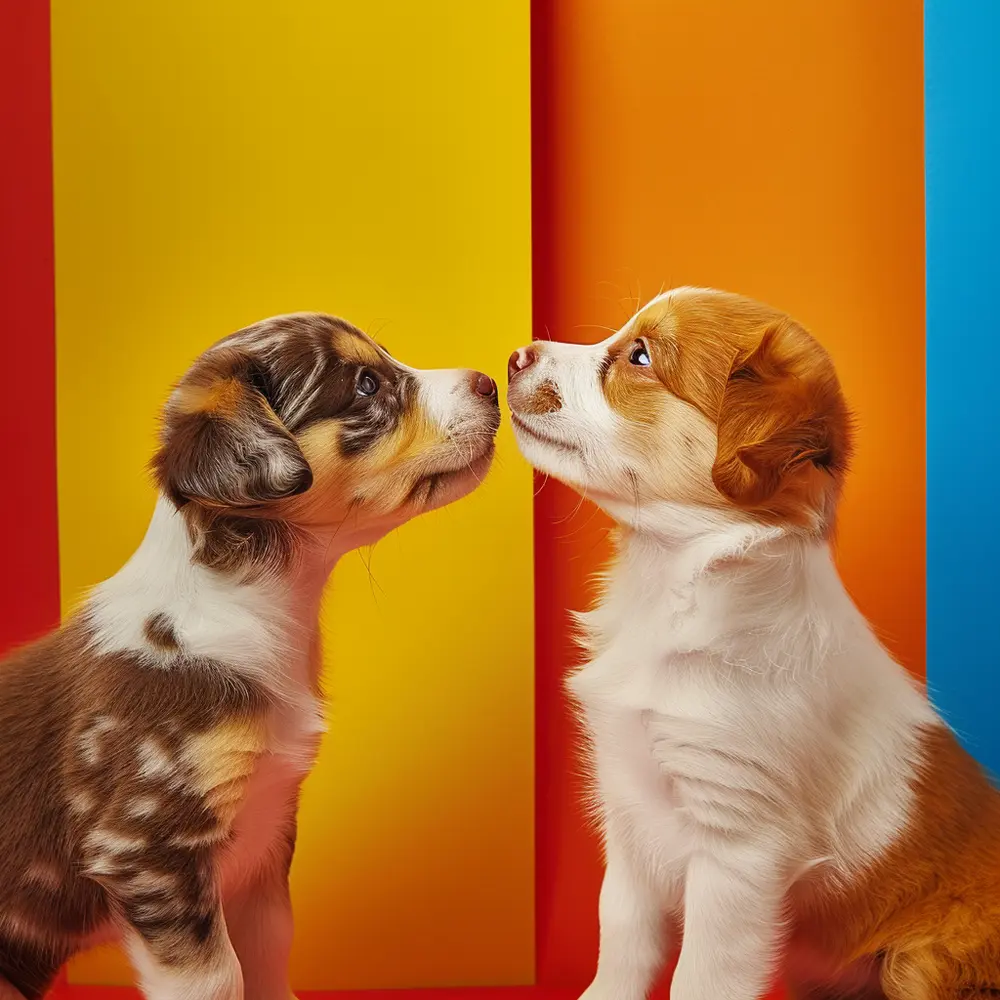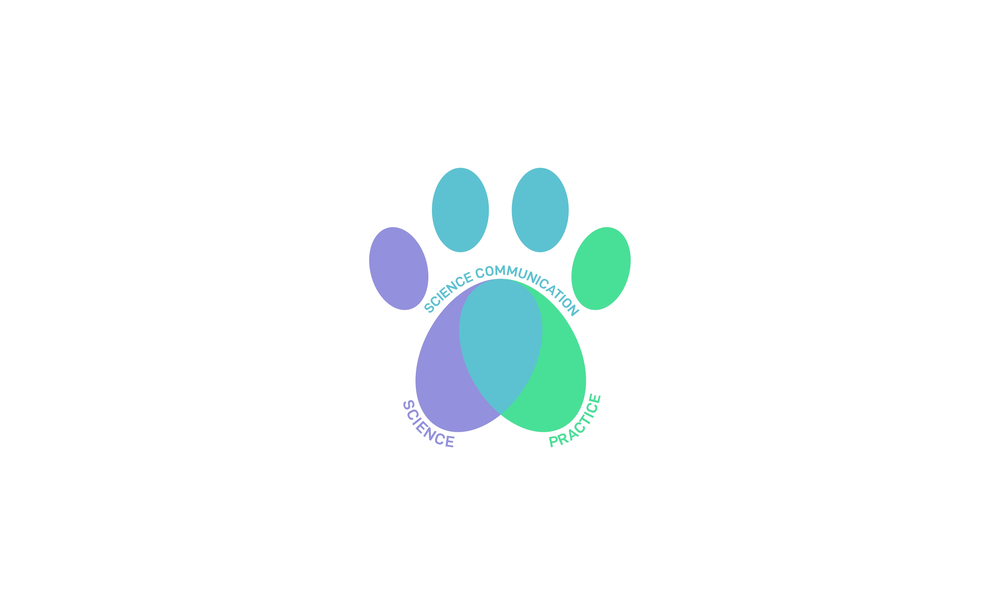Table of Contents:
Understanding Puppy Socialisation
Socialisation is a term that often surfaces when talking about puppies, yet its exact meaning may elude people. In essence, it refers to the process of preparing a puppy to cope confidently with the variety of experiences she or he will encounter throughout life. This includes meeting new people, interacting with other animals, and navigating different situations and environments.
Grasping the concept of socialisation is vital because it equips puppies with the necessary tools to develop into balanced and friendly adult dogs. Early experiences, particularly those in the first three to four months of a puppy's life, can significantly influence their future behaviour and temperament.
Socialisation entails exposing your puppy to new situations in a structured and positive way. It's about finding a balance; slowly dismantling their caution around the unknown, while ensuring they don't become overwhelmed. Proper socialisation can help reduce the development of negative emotions and problem(atic) behaviours, which are often rooted in poor early life experiences.
While socialisation is critical, it is essential to approach it methodically. A puppy growing up in isolation may struggle with fear or aggression. Yet, a puppy exposed to too much too soon might become stressed or scared. The key is progressive exposure to the world, hand in hand with the support and guidance that a young dog requires.
The Safe Approach to Socialising Your Puppy
Taking a safe approach to socialisation is crucial for your puppy's well-being and confidence. Begin by introducing them to new stimuli in an environment where they feel secure. Use your home as a starting point, where introductions to sounds and household items can be made in a controlled manner. It is essential that these experiences are positive, so pair them with treats and playtime to build good associations.
Progress to controlled outdoor experiences, keeping a close eye on your puppy's comfort levels. Use a leash for safety and choose quiet areas initially, gradually building up to busier settings as they demonstrate increased confidence. Remember, each puppy is unique, so tailor the pace to your pet's individual reactions, providing ample time for them to absorb and understand each new encounter.
In addition to real-world experiences, sensory play can be valuable. Exposing your puppy to different textures underfoot, varied sounds, and an assortment of smells can aid in their sensory development. However, be watchful for signs of distress or fear, and retreat to a comfortable situation if necessary, always prioritizing your puppy’s sense of security.
Puppy Socialisation: Benefits and Cautions
| Benefits of Proper Socialisation | Cautions When Socialising Your Puppy |
|---|---|
| Improves Behaviour Around People and Other Dogs | Overwhelm and Stress Can Result From Too Much Too Soon |
| Reduces Fear and Anxiety in New Situations | Potential Exposure to Diseases in Unvaccinated Puppies |
| Builds a Confident and Well-adjusted Dog | Bad Experiences Can Lead to Lifelong Phobias |
| Prepares the Dog for a Variety of Environments | Need for Close Supervision to Prevent Negative Interactions |
| Encourages Good Behaviour During Grooming and Veterinary Visits | Importance of Timing - Sensitive Period for Socialisation is Limited |
Introducing Your Puppy to New Experiences
When introducing your puppy to new experiences, consistency and patience are key. Plan a variety of encounters across a spectrum of environments, people, and other animals. Schedule regular but brief sessions where your puppy can explore these new encounters at their own pace.
Create a positive environment for each new experience. For instance, when meeting new people, ask them to approach calmly and avoid direct eye contact to minimise intimidation. Allow your puppy to initiate contact when they feel ready, rewarding them with praise or treats to reinforce the positive nature of the encounter.
Introducing your puppy to other animals should be carried out with similar caution. Start with animals known to be friendly and vaccinated. Monitor the interactions closely, looking for relaxed body language and playful behaviour from both animals before allowing closer contact.
Exposure to new environments can be particularly stimulating for puppies. Whether it is a bustling high street or a tranquil park, begin with short visits during less busy times. Gradually extend the duration and diversity of these outings, always observing your puppy, ready to intervene if the situation becomes overwhelming.
Remember, your goal is to facilitate a broad range of controlled new experiences that foster your puppy's adaptability and resilience, always mindful of their emotional and physical limits.
The Role of Socialisation in Raising a Well-Adjusted Dog
Socialisation plays an integral part in moulding a puppy into a well-adjusted dog. A solid foundation of varied experiences helps prevent the development of behavioural problems associated with anxiety and aggression. Puppies that are effectively socialised are more likely to exhibit positive behaviour toward strangers, remain calm in diverse settings, and are generally more adaptable to changes in their environment.
Structured socialisation fosters a spirit of curiosity and confidence in puppies. As they learn to navigate new scenarios successfully, they gain the capacity to handle stress more effectively. This emotional resilience is beneficial throughout the dog's life, contributing to both mental well-being and social compatibility.
A well-socialised dog is also a joy to integrate into a human family or a household with other pets. Such dogs have learned to interpret and respond to various cues and signals, avoiding miscommunications that could lead to conflict. Additionally, they are typically more relaxed and less prone to destructive behaviours, making them better companions at home and in public spaces.
The role of socialisation extends beyond immediate behaviour. It impacts a dog's ability to learn throughout its life. Dogs that are socialised early are often more receptive to training, showcasing an eagerness to engage with their owners and the broader environment in a positive and controlled manner.
Socialisation Tips: People, Animals, and Environments
Here are some straightforward tips for socialising your puppy with people, animals, and in various environments:
- With people, start with a small group of familiar and calm individuals before gradually introducing your puppy to a wider variety of people, including children, men, and women, ensuring that each new interaction is positive and non-threatening.
- When meeting animals, especially other dogs, carefully choose playmates who are known to be well-socialised and friendly. Always supervise interactions and be prepared to calmly separate the animals if play becomes too rough or if any signs of anxiety or aggression appear.
- As you take your puppy to different environments, use a lead to maintain control and safety. Start with short visits to quiet locations, steadily increasing the complexity and bustle of the settings as your puppy shows signs of comfort and confidence.
Include a variety of environments in the socialisation process, such as pet-friendly stores, parks, and urban settings. This diversity helps your puppy adapt to different stimuli, including unusual noises and movements.
Always keep socialisation sessions short and sweet to prevent tiring your puppy out. Watch your puppy’s behaviour closely for signs that they need a break, such as yawning, licking lips, or hiding behind you, and respond accordingly.
Remember, the goal is to create a gradual build-up of positive experiences. By following these tips, you will help your puppy grow into a sociable, confident, and well-adjusted companion.
The Importance of Variety and Moderation
The success of socialisation hinges on providing a variety of experiences alongside a sense of moderation. Varying the types of stimuli and scenarios your puppy encounters can enhance their adaptability and normalise a range of sounds, sights, and smells.
While variety is important, moderation is just as crucial. This means carefully gauging and not surpassing your puppy's threshold for new experiences. Too much socialisation can be just as detrimental as too little, potentially leading to overstimulation and stress.
To maintain balance, keep encounters brief and watch for your puppy’s cues. Does your puppy seem curious or playful? That's a green light to continue. If they appear tired or overwhelmed, it's time for a break. Respecting these signals is key to maintaining a positive and nurturing socialisation process.
A variety of controlled and moderate experiences will enrich your puppy’s development, ensuring they grow into a well-rounded adult dog capable of navigating life's complexities.
Recognising Your Puppy's Limits: Avoiding Overwhelm
Understanding and respecting your puppy’s boundaries is a crucial component of effective socialisation. It is essential to recognise the signs of overwhelm to prevent negative experiences that could lead to long-term issues.
Signs that your puppy may be reaching their limit include excessive panting, tucking their tail, hiding, displaying a reluctance to interact with a person or another animal, and taking treats. These indicators suggest it is time to step back and provide a reassuring, calm environment for them to relax in.
Each puppy is an individual with its own comfort levels and limits. Paying close attention to their behaviour and responses will guide you in determining when to introduce more stimuli and when to pull back. By doing so, you're nurturing their confidence and helping to safeguard against the development of fear or anxiety.
Take your time with the process, and don't interpret a slower pace as a setback. The goal isn’t to expose your puppy to everything rapidly but rather to ensure that each new experience is one that builds trust and confidence.
Building Basic Life Skills Through Socialisation
Proper socialisation also involves helping your puppy develop the fundamental life skills they will need as adults. These skills include things like interacting with stimuli in a confident and secure manner, but also walking on a leash, coming when called, and basic obedience signals. These are critical in ensuring your dog can navigate the human world safely and comfortably.
Daily routines should include structured opportunities for your puppy to learn and practise these skills in varying contexts. For example, calling your puppy's name and rewarding them when they come helps build a reliable recall, while introducing them to different walking surfaces prepares them for diverse terrains.
Integrating socialisation with life skills training not only aids in your puppy’s overall development but also reinforces positive behaviours through consistent positive reinforcement. This dual approach also strengthens the bond between you and your puppy, as they learn to look to you for guidance and approval in new situations.
Endeavour to weave these learning moments naturally into your daily activities. This way, your puppy can seamlessly integrate learned behaviours into their everyday experiences, setting the foundation for a well-mannered and adaptable adult dog.
Creating Positive Associations During Socialisation
One of the main goals of socialisation is to help your puppy form positive associations with the various elements of their surroundings. This is achieved by pairing new experiences with favourable outcomes, such as treats, praise, or play.
For instance, if your puppy is apprehensive about car rides, try offering them a beloved toy or a small food reward every time they get into the vehicle. Over time, this positive reinforcement will help your puppy associate car travel with enjoyable rewards.
The same principle applies when introducing your puppy to new people. Have friends gently offer treats to your puppy. This habit will lead them to perceive human interactions as opportunities for pleasure rather than moments of fear.
It is vital to ensure that these associations are not just positive but also appropriate, teaching your puppy desirable ways to react. This conditioning requires consistency, patience, and a keen awareness of your puppy’s reactions, adjusting your approach to suit their individual personality and needs.
Monitoring Your Puppy's Progress and Adjusting Accordingly
Keeping track of your puppy’s responses to socialisation is critical. It allows you to assess their progress and make necessary adjustments to the training regimen. Note which situations they handle well and which may require a gentler approach or additional support.
Should you spot any signs of discomfort or stress, it is essential to take a step back and re-evaluate your strategy. Perhaps certain encounters need to be more gradual, or maybe your puppy needs a little extra encouragement by you to overcome a hurdle.
Celebrating small victories can significantly boost your puppy’s confidence. Acknowledge successful interactions and milestones, no matter how minor they may seem, with plenty of praise and, if advised, treats.
Adjusting your socialisation plan based on your puppy’s individual experiences ensures they receive a tailored approach. This consideration helps foster a resilient and confident adult dog, well-equipped to handle the complexities of life.
When to Seek Professional Guidance in Puppy Socialisation
While many aspects of puppy socialisation can be managed by attentive owners, there are instances when seeking professional guidance can be beneficial. One such case is if your puppy shows persistent signs of fear or aggression that do not improve with gentle, consistent socialisation efforts.
Professional trainers or behaviourists can offer specialised insight into your puppy's unique personality and needs. They possess the expertise to suggest effective, customised strategies that may address underlying issues more promptly and effectively.
In situations where you are unsure about how to progress, or if your puppy’s reactions to socialisation are intense and concerning, it’s a wise choice to consult with a professional. They can assess the situation, guide you, and provide the necessary support for both you and your puppy to navigate this critical developmental phase.
Remember, proactive measures in seeking expert advice can prevent minor issues from developing into more severe behavioural problems, paving the way for your puppy to grow into a well-adjusted and sociable dog.
Socialisation and Your Puppy's Future: Long-Term Benefits
The efforts invested in socialisation during puppyhood have profound long-term benefits. Proper socialisation sets the foundation for your pet to become a calm and adaptable dog, with reduced chances of developing problematic behaviours often associated with fear or anxiety.
Dogs that have been well-socialised are typically more receptive to training and new experiences throughout their lives. They're often better equipped to handle situations such as vet visits, encounters with other animals, and travelling, which are vital for a fulfilling life shared with their human companions.
Moreover, socialisation can also contribute positively to your puppy's health. Stress can have detrimental physical effects, and a dog that is confident and relaxed is likely to enjoy better overall well-being. With a solid socialisation background, your dog will likely have fewer stress-related health issues and more robust mental health.
Ultimately, socialisation is one of the most precious gifts you can offer your puppy. It paves the way towards a lifetime of joyous interactions, companionship, and shared experiences, benefitting both you and your faithful furry friend.
Puppy Socialisation FAQs
What is the best age to start socialising my puppy?
The ideal time to begin socialising your puppy is between three and four months of age, as this is a critical period when puppies are most receptive to new experiences.
How can I socialise my puppy with other dogs safely?
Start with short, controlled meetings with vaccinated, well-socialised dogs in a safe environment, monitoring their interactions closely and intervening if play escalates.
Can I socialise my puppy before they're fully vaccinated?
It is advisable to consult your vet before exposing your puppy to public spaces and other animals. Controlled exposure at home or in secured private spaces can begin prior to full vaccination under guidance.
What should I do if my puppy seems overwhelmed during socialisation?
If your puppy displays signs of stress such as excessive panting or hiding, retreat to a familiar, comfortable space and provide a calming environment to help them relax.
Why is socialisation important for my puppy's development?
Socialisation is crucial for developing a well-adjusted, confident, and adaptable dog. It helps prevent behavioural issues associated with fear or aggression and enables dogs to handle new experiences positively.





